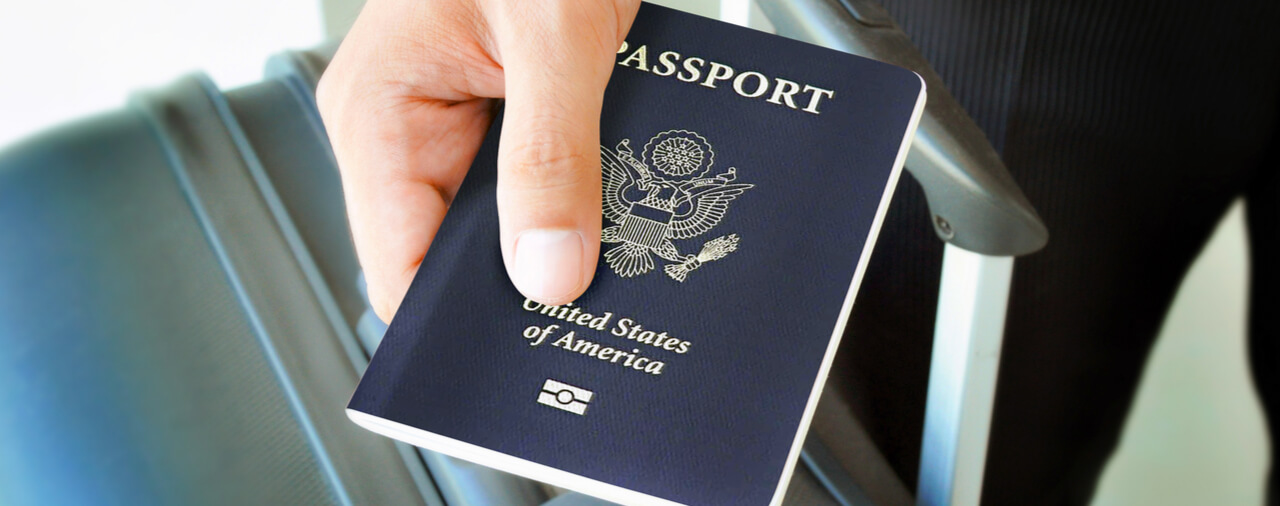- Introduction
- Acceptable Documents for Domestic Flights
- Forgotten ID
- Children
- Notes from DHS FAQ
- Conclusion
Introduction
In order to be permitted to board a plane to travel internationally, an individual must have a valid passport and permission to enter the country to which he or she intends to travel in order.
However, in order to travel by air domestically within the United States, an individual may rely on a variety of government-issued identity documents in order to pass Transportation Security Agency (TSA) checkpoints. These identification requirements apply to adults aged 18 years or older. It is important to note that the domestic identification requirements are not applicable to international flights.
Acceptable Documents for Domestic Flights
The TSA provides a webpage with information about acceptable documents for domestic flights [PDF version].
The following is a list of identification documents that the TSA will accept at checkpoints for domestic flights:
Driver’s licenses or other state photo identity cards issued by Department of Motor Vehicles (or equivalent);
U.S. passport;
U.S. passport card;
Department of Homeland Security (DHS) trusted traveler cards (Global Entry, NEXUS, SENTRI, FAST);
U.S. Department of Defense ID, including IDs issued to dependents;
Permanent resident card (Form I-551);
Border crossing card;
DHS-designated enhanced driver’s licence;
Federally recognized, tribal-issued photo ID;
HSPD-12 PIV card;
Foreign government-issued passport;
Canadian provincial driver9;s license or Indian and Northern Affairs Canada card;
Transportation worker identification credential;
U.S. Citizenship and Immigration Services Employment Authorization Card (Form I-766); or
U.S. Merchant Mariner Credential.
The TSA makes clear that a weapons permit is not an acceptable form of identification for domestic flights. A temporary driver’s license is also not an acceptable form of identification for domestic flights.
As the list indicates, the TSA accepts a variety of forms of documentation for domestic flights. Notably for many foreign nationals, permanent resident cards and employment authorization cards are both acceptable forms of documentation for domestic flights.
Forgotten ID
Although individuals are required to present a specified form of identification in order to fly domestically, the TSA may still allow individuals who forget their valid identification to fly. In such an event, the TSA officer may ask the individual to complete an identity verification process. This process may include collecting information such as the traveler’s name, current address, and other personal information needed for identity verification. Provided that the TSA officer is able to confirm the individual’s identity, the individual will be allowed to enter the screening checkpoint. Individuals in this situation may be subject to additional screening.
Children
The TSA does not require children under the age of 18 to provide information when they are traveling with a companion within the United States. The TSA encourages individuals to contact their airliner regarding ID requirements for travelers under the age of 18.
Notes from DHS FAQ
The DHS issued an additional FAQ on identification requirements for domestic travel [PDF version]. In this section, we will review some of the noteworthy points.
Compliance with Real ID Act
The Real ID Act establishes minimum requirements for state- and territory-issued driver’s licenses and identification cards to be acceptable for certain federal purposes, including boarding a commercial aircraft. As of February 16, 2018, 55 out of 56 states and territories are either deemed compliant or have been granted an extension to meet the requirements. The lone jurisdiction that has not been granted an extension is American Samoa. Please see our blog on how this affects American Samoans traveling by air [see blog].
You may also see the DHS page on the issue [PDF version].
Enhanced Driver’s Licenses
Enhanced Driver’s Licenses are acceptable both as border-crossing documents and for boarding a commercial aircraft. The only states that currently issue Enhanced Driver’s Licenses are Michigan, Minnesota, New York, Vermont, and Washington.
The DHS addresses Enhanced Driver’s Licenses in more detail on its website [PDF version].
REAL ID Effect on States That Provide Identification to Certain Non-Citizens
The DHS explains that the REAL ID act allows compliant states to issue driver’s licenses and other identification documents to individuals whose identity cannot be assured or for whom lawful presence in the United States is not determined. These noncompliant cards must state on their face that they are not acceptable for official purposes. In the FAQ, the DHS states that possession of a noncompliant card should not lead to the assumption, in and of itself, that the holder is an “undocumented individual.” The reason against this assumption is that “several states issue noncompliant licenses for reasons unrelated to lawful presence.”
DACA Phase-Out
On September 5, 2018, the DHS announced the phase-out of the Deferred Action for Childhood Arrivals (DACA). Please see our main article on the issue for updates on the situation [see article].
The REAL ID Act allows states to issue temporary REAL ID-compliant driver’s licenses and identification cards to applicants who provide evidence that they have been approved for DACA. The DHS stated that “[i]ndividuals with approved [DACA], valid EADs[,] and valid [Social Security numbers] may continue to hold temporary (limited-term) REAL IDs until their expiration.” States may issue noncompliant licenses and identification documents to individuals whose DACA lapses.
Conclusion
It is important for individuals — citizens and noncitizens alike — to ensure that they have proper documentation to pass through TSA checkpoints when flying. As the article indicates, the TSA accepts a variety of identification documents for purpose of domestic air travel.





